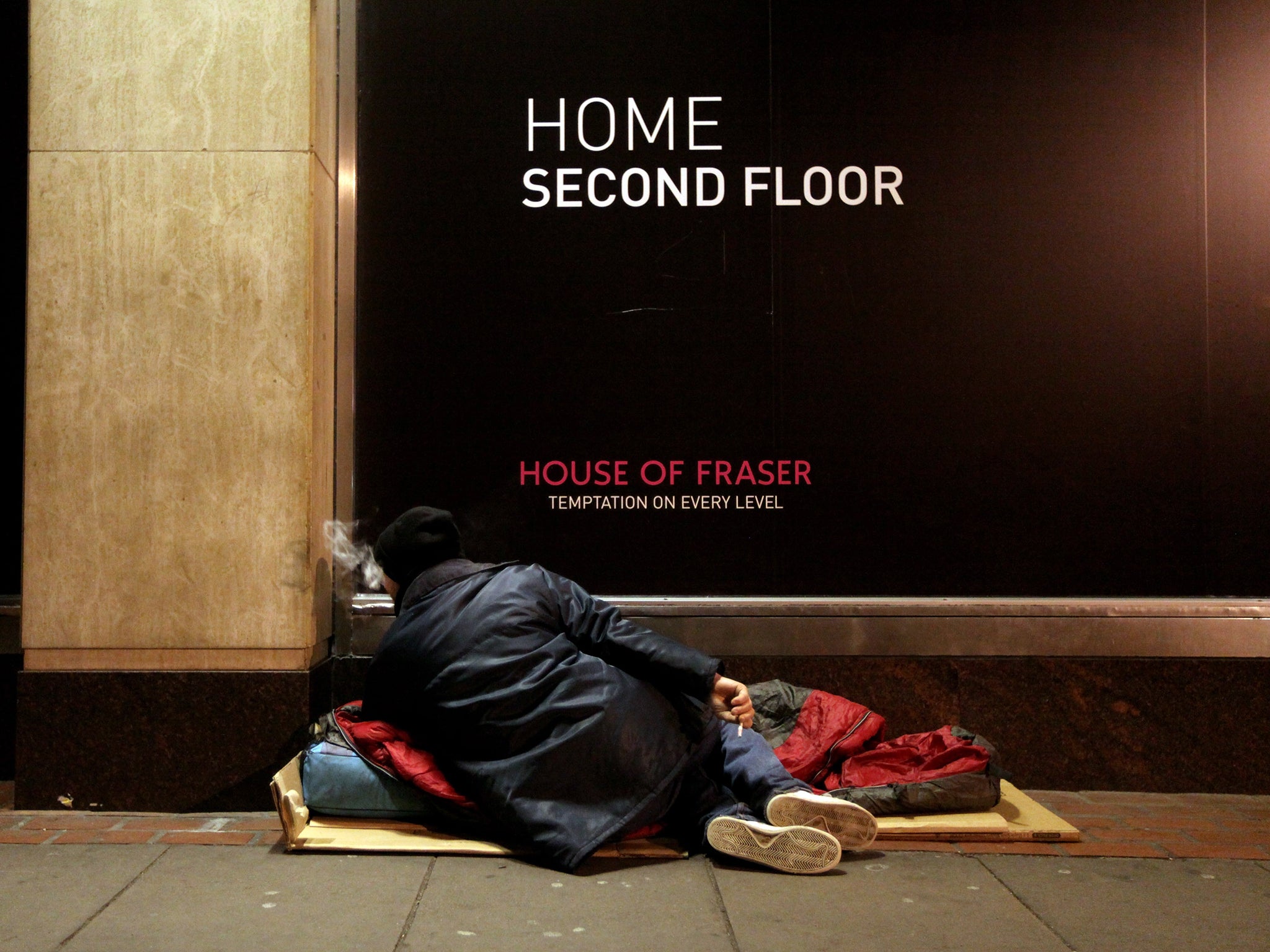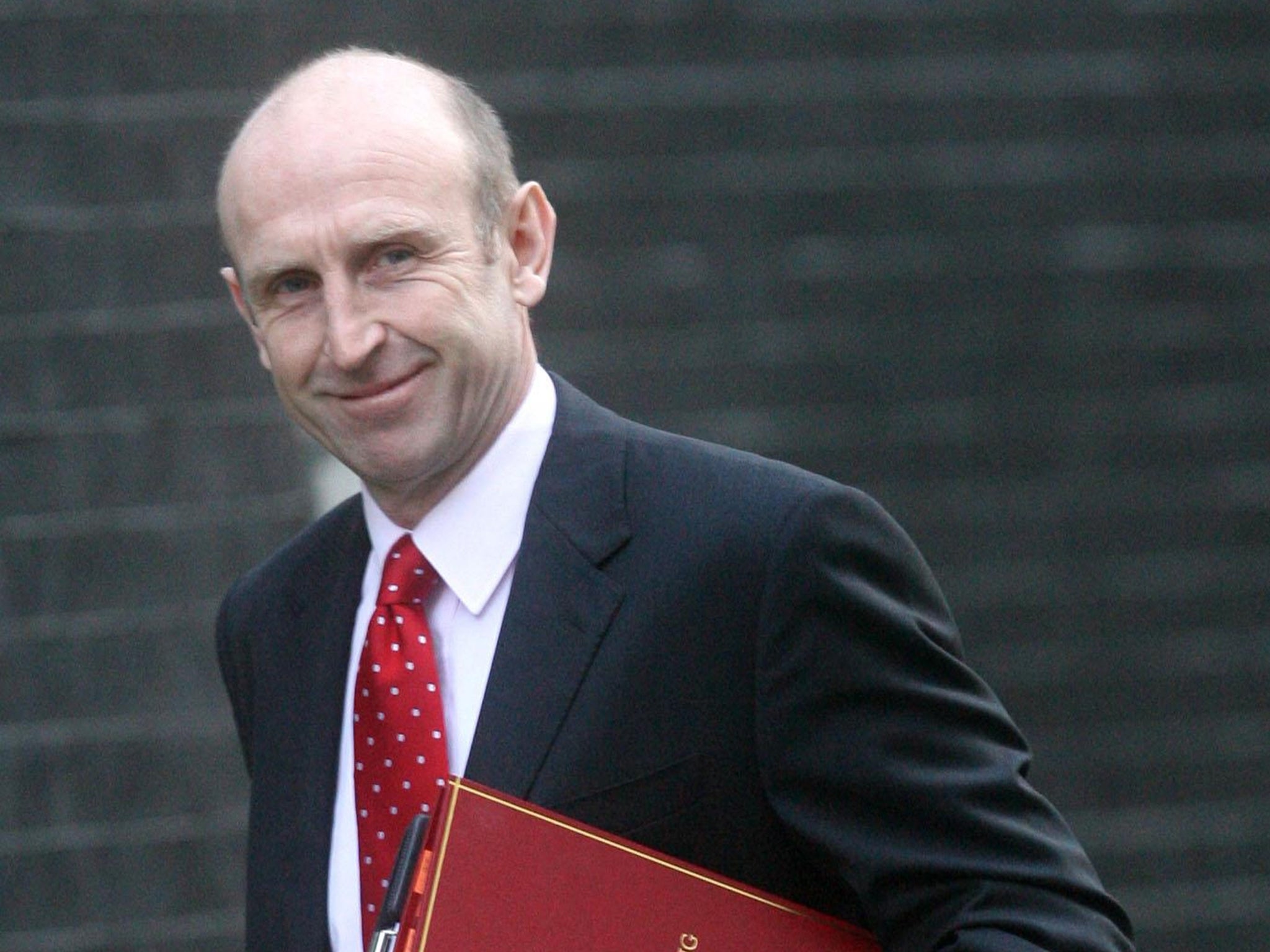Labour unveils plan to end rough sleeping
The party will double homes earmarked for a rough sleeping scheme

Labour has unveiled a plan aimed at eradicating rough sleeping, arguing that the UK is “too decent and too well off to put up with people sleeping on our streets”.
The number of people sleeping rough has nearly doubled in the last six years, government figures show, while the number of homeless households rose to 60,000 this year, according to John Healey, the shadow housing minister. Children, too, have been hit hard by the housing crisis, with more than 100,000 without a permanent home for Christmas, the Labour MP said.
Writing for The Independent, Mr Healey said Theresa May’s pledge to create “a country that works for everyone” means that she “should not tolerate this” rising level of deprivation.
Mr Healey said affordable housing supply and accessibility is the key to solving the problem and that he would double the capacity of a housing scheme reserved for people with a history of sleeping rough.
Labour’s plan would see 4,000 additional housing association homes earmarked for rough sleepers.
The party said it would rejuvenate the Rough Sleepers Initiative (RSI), started by housing minister Sir George Young in the 1990s. The RSI, later consolidated into the Rough Sleepers Unit (RSU) by the New Labour government, used street outreach teams to find rough sleepers and refer them to 4,000 units of accommodation originally constructed for the programme.
In the 1990s this programme was considered highly effective at reducing rough sleeping.
The call came amid The Independent’s Christmas campaign to raise money for the charity Centrepoint’s Young and Homeless helpline.
“Many may remember the mass homelessness of the 1980s and 1990s, with tent cities in central London,” the shadow minister wrote.
“But in one of its biggest forgotten successes the last Labour government reduced rough sleeping by around three-quarters. We set out a comprehensive intervention plan, ground-breaking legislation, fresh investment, and a target to cut rough sleeping by two-thirds – delivered a year early.”
Mr Healey has challenged the Prime Minister to match Labour’s policy and also to meet and exceed her target of building affordable homes.

He added: “Homelessness can and should be a cross-party commitment, with a new national will to solve the growing problem.”
Projections released by the Office for Budget Responsibility in the Autumn Statement showed that government policies would slightly slow the rate of affordable housebuilding – despite housebuilding currently being nowhere near the rate required to meet Theresa May’s target of building a million homes by 2020.
Even that target is considered inadequate with 300,000 a year often quoted as the benchmark level required to stop costs from continuing to rise in the housing market.
Join our commenting forum
Join thought-provoking conversations, follow other Independent readers and see their replies
Comments
Bookmark popover
Removed from bookmarks